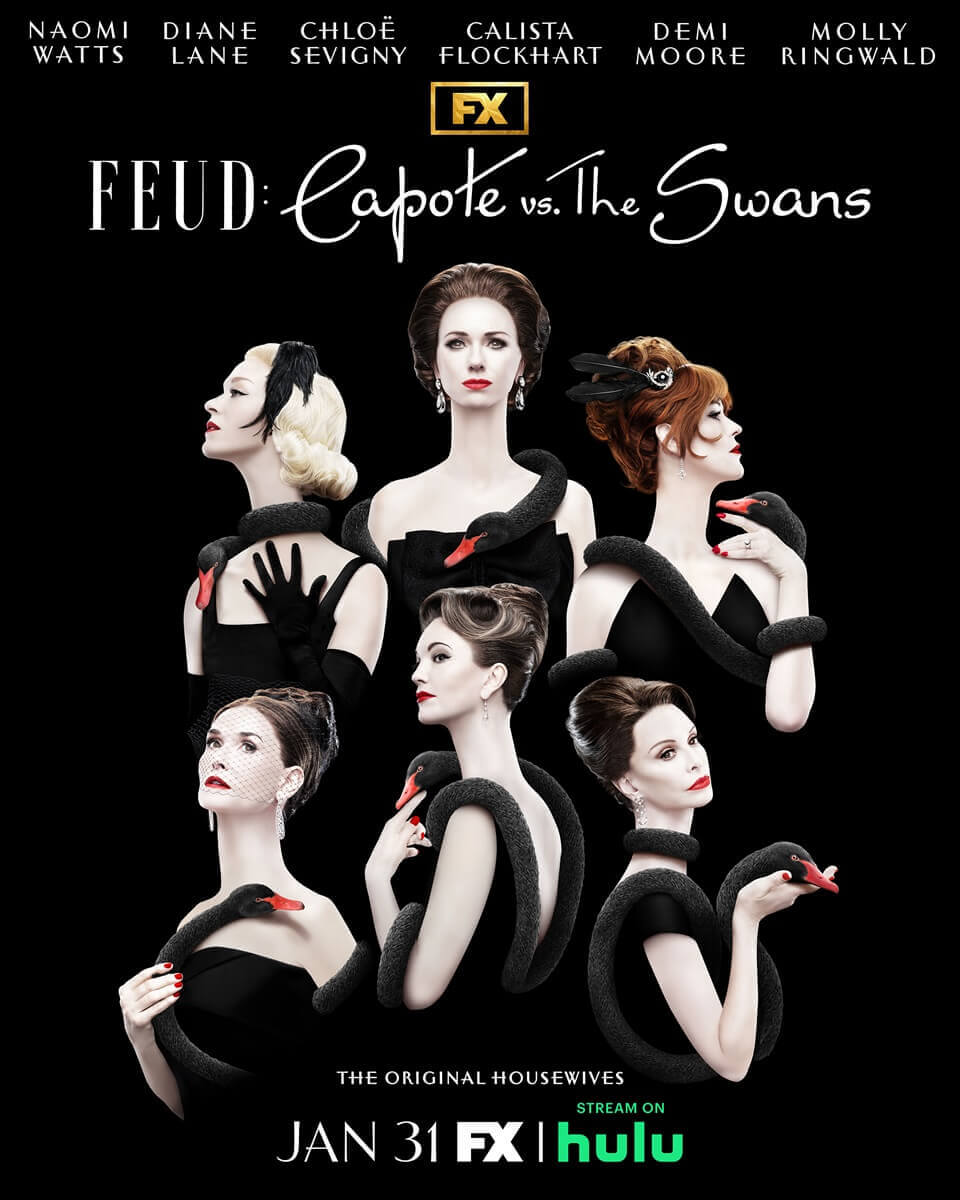The feud between Truman Capote and the social elite known as "The Swans" is a captivating chapter in literary history. This rivalry not only sheds light on Capote's complex personality but also highlights the dynamics of friendship and betrayal within high society. In this article, we will delve deep into the intricacies of this feud, exploring the personalities involved, the cultural context, and the lasting impact it had on both Capote and the Swans.
As we navigate through this narrative, we will examine key events that fueled the animosity, including Capote's controversial book "Answered Prayers," which exposed the private lives of his former friends. This exposé not only severed ties with many of the Swans but also raised questions about loyalty, trust, and the price of fame. Understanding this feud requires a closer look at the characters involved, their motivations, and the societal pressures they faced.
Join us as we unravel the layers of this fascinating rivalry, enriched with historical context, biographical details, and insights from renowned sources. By the end of this exploration, you will gain a comprehensive understanding of the Capote vs. The Swans feud and its implications on literature and social circles.
Table of Contents
- Biography of Truman Capote
- Who Were The Swans?
- The Feud Begins
- "Answered Prayers": The Catalyst
- Impact on Truman Capote
- Impact on The Swans
- Cultural Context of the Feud
- Conclusion
Biography of Truman Capote
Truman Capote, born on September 30, 1924, in New Orleans, Louisiana, was a prominent American author known for his distinctive style and notable works, including "In Cold Blood" and "Breakfast at Tiffany's." His life was marked by both brilliance and tragedy, which shaped his literary voice.
| Personal Data | Details |
|---|---|
| Name | Truman Capote |
| Birth Date | September 30, 1924 |
| Birth Place | New Orleans, Louisiana |
| Notable Works | In Cold Blood, Breakfast at Tiffany's, Other Voices, Other Rooms |
| Died | August 25, 1984 |
Who Were The Swans?
The Swans were a group of wealthy and glamorous women who were part of New York City's high society in the 1970s. They were known for their beauty, sophistication, and social influence. Some of the most notable Swans included Babe Paley, Lee Radziwill, and CZ Guest. Their lives were intertwined with Capote, who adored them and often included them in his social circles.
Characteristics of The Swans
- Elegance and Style: The Swans were known for their impeccable fashion sense and social graces.
- Influence: They had significant sway within elite social circles and were often the subject of media attention.
- Relationships with Capote: These women were not just acquaintances but close friends who shared their lives with the author.
The Feud Begins
The seeds of the feud were sown in the early 1970s when Capote began to feel a sense of betrayal from his friends. As he became more successful, the dynamics of his relationships with the Swans started to shift. Tensions began to rise as Capote struggled with his identity and the expectations placed upon him by society.
"Answered Prayers": The Catalyst
Capote's final work, "Answered Prayers," acted as the catalyst for the feud's escalation. In this novel, he drew heavily from his experiences with the Swans, exposing their secrets and private lives. This betrayal shocked his friends and led to a swift and public fallout.
Key Themes in "Answered Prayers"
- Friendship and Betrayal: The narrative explores the complexities of friendships that can turn sour.
- Fame and Consequences: Capote's desire for fame ultimately led to his isolation.
- Societal Expectations: The book critiques the superficial nature of high society.
Impact on Truman Capote
The fallout from his revelations had a profound impact on Capote's life. He lost many of his closest friends and found himself ostracized from the very society he once adored. This isolation exacerbated his struggles with addiction and mental health issues, leading to a tragic decline in his later years.
Impact on The Swans
The Swans, on the other hand, faced their own challenges in the wake of Capote's betrayal. Many of them struggled with public scrutiny and the damage to their reputations. The fallout from the feud served as a cautionary tale about the fragility of friendships in the spotlight.
Cultural Context of the Feud
The Capote vs. The Swans feud must be understood within the cultural context of the 1970s. This was a time of significant social change, with shifting attitudes towards celebrity, privacy, and the nature of friendship. Capote's actions can be seen as a reflection of the era's complexities, where personal relationships were often intertwined with public personas.
Conclusion
In conclusion, the feud between Truman Capote and The Swans is a fascinating exploration of friendship, betrayal, and the consequences of fame. By examining the personalities involved, the key events that unfolded, and the cultural context, we gain a deeper understanding of this rivalry's significance. We encourage you to share your thoughts on this intriguing narrative or explore more about Capote's life and works.
As you reflect on this story, consider the delicate balance between friendship and ambition. The legacy of Capote and The Swans serves as a reminder of the complexities of human relationships, especially within the world of high society.
Also Read
Kevin Costner In Yellowstone: A Deep Dive Into His Character And ImpactJennifer Aniston's New Haircut 2024: A Fresh Look For The New Year
Snoop Dogg's Daughter: The Rise Of Cori Broadus In The Spotlight
Jessica Lange Young: A Journey Through The Early Years Of An Iconic Actress
Patricia Krenwinkel: The Life And Legacy Of A Notorious Figure
Article Recommendations
- Michael Boulos Christian
- Wendys Free Food Today
- How Many Amazon Prime Days Are There
- Enma Stone Husband
- Common Rapper Born
- Nile Rodgers Children
- Is Stubhub Legit
- Does Luca Leave Swat
- Oakley Raee
- Lebron James Jr Girlfriend




